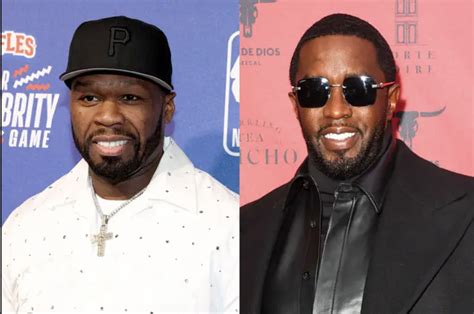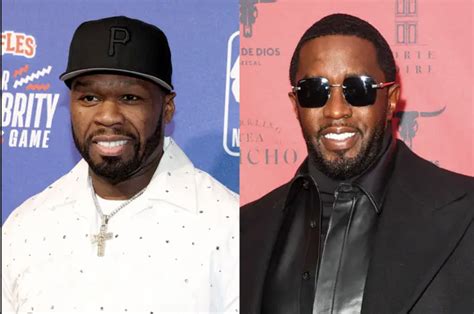
Prince William, now heir to the throne, is reportedly blocking King Charles’ plans to bestow royal titles upon Prince Harry and Meghan Markle’s children, Archie and Lilibet, despite Charles’ initial desire to formally recognize their grandchildren’s status following Queen Elizabeth II’s death and his own ascension to the throne.
The impediment stems from ongoing tensions and trust issues between William and Harry, fueled by the contents of Harry’s memoir, Spare, and the couple’s various media appearances detailing their experiences within the Royal Family. According to reports, William believes granting Archie and Lilibet HRH (His/Her Royal Highness) titles would be a dangerous precedent, particularly given Harry and Meghan’s decision to step back from royal duties and their continued criticism of the institution. The move is perceived by some as further solidifying the rift between the brothers and raising questions about the future of the monarchy’s image and public perception.
King Charles initially intended to update the Letters Patent issued by King George V in 1917, which dictate who is entitled to be a Prince or Princess and use the HRH style. Under these rules, as grandchildren of the monarch, Archie and Lilibet automatically became Prince and Princess upon Charles’ accession. However, while their names were updated on the royal website to reflect their titles, official confirmation and the use of HRH remain uncertain.
“Charles is said to be willing to formally acknowledge Archie and Lilibet as prince and princess,” reported the Daily Beast, “but William is less keen.” The core of William’s resistance lies in his concern that granting the titles, along with the HRH status, would lend credibility and legitimacy to Harry and Meghan’s brand, especially as they pursue independent ventures outside the royal fold. This concern is amplified by the potential for perceived exploitation of royal connections for commercial gain, a concern that has dogged the Sussexes since their departure.
The situation is further complicated by the deep-seated mistrust between the brothers. Harry’s memoir, with its unflinching account of their relationship, including allegations of physical altercations and professional rivalries, has reportedly left William feeling betrayed and deeply hurt. This strained relationship makes it difficult for William to view the issue of Archie and Lilibet’s titles solely through a constitutional lens, instead, it is interpreted through the context of personal animosity and a perceived lack of loyalty from Harry and Meghan.
Furthermore, William is said to be acutely aware of public sentiment regarding the Royal Family. He is reportedly concerned that granting titles to Archie and Lilibet, while Harry and Meghan continue to live in California and engage in media activities critical of the monarchy, could be perceived as unfair or hypocritical by the British public. This could further damage the Royal Family’s reputation at a time when it is already facing challenges related to its relevance and cost to the taxpayer.
Royal experts suggest that the King is caught between his desire to heal the family rift and his responsibility to uphold the long-term interests of the monarchy. While he may be personally inclined to grant his grandchildren their titles, he must also consider the potential repercussions for the institution as a whole. William’s position, as the future King, carries significant weight, and his objections cannot be easily dismissed.
The delay in formally recognizing Archie and Lilibet’s titles has fueled speculation and debate in the British media and among royal commentators. Some argue that denying the children their birthright would be a petty and vindictive act, further alienating Harry and Meghan and perpetuating the family feud. Others contend that William is right to be cautious, arguing that granting the titles would set a dangerous precedent and could be exploited by the Sussexes for their own gain.
The ongoing saga underscores the complex dynamics within the Royal Family, where personal relationships, constitutional protocols, and public perception are constantly intertwined. The decision regarding Archie and Lilibet’s titles will likely have lasting implications for the future of the monarchy and its relationship with the Duke and Duchess of Sussex. It also highlights the challenges faced by King Charles as he navigates the delicate balance between tradition and modernity, and between family loyalty and institutional responsibility.
The situation also brings into focus the broader debate about the role and relevance of the monarchy in the 21st century. Critics argue that the Royal Family is an outdated institution that is out of touch with the realities of modern life. Supporters, on the other hand, maintain that the monarchy provides stability, continuity, and a sense of national identity. The ongoing controversy surrounding Archie and Lilibet’s titles serves as a reminder of the ongoing scrutiny and challenges faced by the Royal Family as it seeks to maintain its position in a rapidly changing world.
The ultimate resolution of this issue remains uncertain. It is possible that King Charles will eventually overrule William’s objections and formally grant Archie and Lilibet their titles. However, it is equally possible that a compromise will be reached, perhaps involving the granting of titles without the use of HRH, or that the issue will remain unresolved for the foreseeable future, further straining relations between the Royal Family and the Duke and Duchess of Sussex.
The sensitivity of the matter is compounded by the constant media attention and public speculation. Every statement and action by members of the Royal Family is scrutinized and analyzed, adding to the pressure and complexity of the situation. The future of Archie and Lilibet’s royal status, therefore, remains a significant point of contention within the House of Windsor, symbolizing deeper rifts and posing ongoing challenges to the monarchy’s cohesion.
The potential ramifications of this decision extend beyond the immediate family dynamic. It touches upon questions of fairness, precedent, and the very definition of what it means to be a member of the Royal Family in the modern era. The world watches as the Windsors grapple with these issues, aware that the choices they make will shape the future of the monarchy for generations to come. The situation necessitates a careful and considered approach, balancing the needs and desires of individual family members with the broader interests and responsibilities of the institution. The King’s ultimate decision will undoubtedly be influenced by a complex interplay of factors, including his personal relationships, his constitutional obligations, and his awareness of public sentiment.
The stakes are high, and the outcome remains uncertain. What is clear, however, is that the issue of Archie and Lilibet’s titles has become a focal point for broader questions about the future of the Royal Family and its place in the world.
Expanded Analysis and Background
The controversy surrounding Archie and Lilibet’s royal titles is not simply a matter of semantics; it’s a reflection of deep-seated issues within the Royal Family and a broader debate about the monarchy’s role in contemporary society. To fully understand the situation, it’s necessary to delve into the historical context of royal titles, the evolving dynamics between the Sussexes and the rest of the family, and the potential implications for the future of the institution.
The granting of royal titles is governed by a complex set of rules and traditions, dating back centuries. The most relevant legislation in this case is the Letters Patent issued by King George V in 1917. These letters patent limited the number of people who could be styled as HRH and hold the title of Prince or Princess. They stipulated that only the children of the monarch, the children of the monarch’s sons, and the eldest living son of the eldest son of the Prince of Wales were automatically entitled to these styles and titles.
This rule was intended to streamline the monarchy and reduce the number of royals supported by public funds. However, it also created potential anomalies, as seen in the cases of Princess Anne’s children, Peter Phillips and Zara Tindall, who were not granted titles at birth at their mother’s request, despite being grandchildren of the monarch.
Upon Queen Elizabeth II’s death and Charles’s ascension to the throne, Archie and Lilibet automatically became Prince and Princess under the 1917 Letters Patent, as they are now grandchildren of the monarch. However, the use of the HRH style is a separate matter, which the King can decide.
The current situation is further complicated by the Sussexes’ decision to step back from their roles as senior working royals in 2020. This decision, dubbed “Megxit” by the media, resulted in Harry and Meghan relinquishing their official duties, financial support from the Sovereign Grant, and the use of their HRH styles. While they retained their titles of Duke and Duchess of Sussex, they agreed not to use their HRH styles in a professional capacity.
The Sussexes’ departure from royal life was driven by a number of factors, including their frustration with the British media, their desire for greater independence, and their feeling that they were not adequately supported by the Royal Family. In subsequent interviews and media appearances, they have spoken openly about their experiences within the institution, including allegations of racism and a lack of support for Meghan’s mental health.
These revelations have strained relations between the Sussexes and the rest of the Royal Family, particularly Prince William. Harry’s memoir, Spare, further exacerbated these tensions with its detailed account of their strained relationship and allegations against William. The book reportedly left William feeling deeply betrayed and mistrustful of Harry and Meghan.
Against this backdrop, the question of Archie and Lilibet’s titles has become a contentious issue. King Charles is reportedly inclined to grant his grandchildren their titles, both out of personal affection and a desire to heal the family rift. However, William is said to be opposed to this, fearing that it would legitimize the Sussexes’ brand and potentially be exploited for commercial gain.
William’s concern is rooted in the precedent that granting titles to non-working royals could set. He reportedly believes that it would be unfair to other members of the family who dedicate their lives to public service and that it could undermine the credibility of the monarchy as a whole. He is also said to be wary of the potential for the Sussexes to use their children’s titles to further their own agenda, particularly given their continued criticism of the Royal Family.
The decision regarding Archie and Lilibet’s titles is therefore a complex one, involving personal relationships, constitutional protocols, and public perception. King Charles must weigh his desire to reconcile with his son and grandchildren against his responsibility to uphold the long-term interests of the monarchy. William’s objections, as the future King, cannot be easily dismissed, and his concerns about the potential consequences of granting the titles must be taken into account.
The situation highlights the challenges faced by the Royal Family in navigating the complexities of modern life. The monarchy is an institution steeped in tradition, but it must also adapt to changing social norms and expectations. The Sussexes’ departure from royal life has forced the family to confront difficult questions about its role and relevance in the 21st century.
The decision regarding Archie and Lilibet’s titles will have lasting implications for the future of the monarchy. It will send a message about the family’s values and priorities, and it will shape the relationship between the Royal Family and the Duke and Duchess of Sussex for years to come. The outcome remains uncertain, but it is clear that the issue has become a focal point for broader questions about the future of the institution.
The Public’s Perspective
Public opinion on the matter is divided. Some believe that Archie and Lilibet are entitled to their titles as a matter of birthright and that denying them would be a petty and vindictive act. Others agree with William’s concerns, arguing that granting the titles would be unfair to working royals and could be exploited by the Sussexes for their own gain.
The British public has a long and complicated relationship with the Royal Family. While many still support the monarchy, there is also a growing sense of skepticism, particularly among younger generations. The cost of maintaining the Royal Family, the perceived extravagance of their lifestyle, and the scandals that have plagued the institution over the years have all contributed to this skepticism.
The Sussexes’ departure from royal life and their subsequent media appearances have further fueled the debate about the monarchy’s relevance. Some see them as victims of a rigid and outdated institution, while others view them as self-serving individuals who have exploited their royal connections for personal gain.
The decision regarding Archie and Lilibet’s titles will inevitably be viewed through this lens. Those who support the Sussexes are likely to see denying the children their titles as further evidence of the Royal Family’s prejudice and inflexibility. Those who are critical of the Sussexes are likely to see granting the titles as a reward for bad behavior.
The Royal Family must therefore be mindful of public opinion when making its decision. It needs to strike a balance between upholding tradition and adapting to modern sensibilities. It also needs to ensure that its actions are perceived as fair and just, both by the British public and by the wider world.
Potential Outcomes and Their Implications
Several potential outcomes are possible in the case of Archie and Lilibet’s titles, each carrying its own set of implications:
-
Full Granting of Titles and HRH Status: This would involve King Charles formally acknowledging Archie and Lilibet as Prince and Princess with the HRH style. This outcome would likely be seen as a gesture of reconciliation and goodwill towards the Sussexes. It could help to heal the family rift and improve the Royal Family’s image. However, it could also be criticized as being unfair to working royals and as potentially legitimizing the Sussexes’ brand.
-
Granting Titles Without HRH Status: This would involve acknowledging Archie and Lilibet as Prince and Princess, but without the HRH style. This could be seen as a compromise solution, satisfying the Sussexes’ desire for their children to be recognized as royals while also addressing concerns about the potential for exploitation. However, it could also be seen as a half-measure that does not fully resolve the issue.
-
Postponing the Decision: King Charles could choose to delay making a decision about Archie and Lilibet’s titles. This would allow more time for negotiations and could potentially lead to a more amicable resolution. However, it could also prolong the uncertainty and fuel further speculation.
-
Denying Titles Altogether: This would involve refusing to acknowledge Archie and Lilibet as Prince and Princess. This outcome would likely be seen as a deeply divisive act that would further alienate the Sussexes and damage the Royal Family’s reputation. However, it could also be seen as a principled stance against the Sussexes’ perceived exploitation of their royal connections.
The King’s decision will depend on a variety of factors, including his personal relationships, his constitutional obligations, and his assessment of public opinion. It is a complex and sensitive issue with no easy answers. The outcome will undoubtedly have a significant impact on the future of the Royal Family and its relationship with the Duke and Duchess of Sussex.
The decision regarding Archie and Lilibet’s titles is more than just a family matter; it is a reflection of the evolving role of the monarchy in the 21st century. The outcome will shape the future of the institution and its relationship with the public for generations to come.
FAQ
-
Why are Archie and Lilibet eligible for royal titles now?
Upon Queen Elizabeth II’s death and Charles’s ascension to the throne, Archie and Lilibet became grandchildren of the monarch, automatically making them eligible for the titles of Prince and Princess under the Letters Patent issued by King George V in 1917. These rules dictate that the children of the monarch, the children of the monarch’s sons, and the eldest living son of the eldest son of the Prince of Wales are entitled to these styles and titles.
-
What is Prince William’s role in deciding whether Archie and Lilibet receive their titles?
As the heir to the throne, Prince William’s opinion carries significant weight. Reports suggest he is hesitant to grant Archie and Lilibet HRH titles, fearing it would legitimize the Sussexes’ brand and could be exploited for commercial gain, which has influence on the King’s final decision.
-
Why did Harry and Meghan step back from their royal duties?
The Sussexes’ decision to step back from royal life was driven by various factors, including frustration with the British media, a desire for greater independence, and a feeling of inadequate support from the Royal Family. They sought to carve out a more progressive role, which was not accommodated within the established structure.
-
What does “HRH” stand for, and what does it signify?
“HRH” stands for His/Her Royal Highness. It is a style or prefix used before the name of certain members of the Royal Family, signifying their status and entitlement to certain privileges and protocols. The decision to grant or withhold HRH status is at the discretion of the monarch.
-
How might denying Archie and Lilibet their titles affect the Royal Family’s image?
Denying Archie and Lilibet their titles could be perceived negatively, potentially exacerbating the family rift and damaging the Royal Family’s reputation. Some might view it as a petty or vindictive act. Alternatively, others might support the decision, seeing it as a necessary step to prevent the exploitation of royal connections. The public’s reaction would likely depend on their existing views of the Sussexes and the monarchy.
Conclusion
The issue of whether Archie and Lilibet will be formally granted their Prince and Princess titles, along with the HRH styling, remains a complex and unresolved matter. The impasse highlights the deep-seated tensions within the British Royal Family, particularly between Prince William, the heir to the throne, and Prince Harry, who, along with his wife Meghan Markle, has chosen a life outside the traditional confines of the monarchy. The decision is not simply a matter of protocol or family tradition but is heavily influenced by personal relationships, concerns about the future direction of the monarchy, and the ever-watchful eye of the public.
King Charles finds himself in a precarious position, attempting to balance his desire to reconcile with his son and grandchildren with his duty to safeguard the institution he now leads. The views of Prince William, who is expected to ascend the throne after his father, carry significant weight, and his reported reservations about granting the titles reflect a deeper concern about maintaining the integrity and relevance of the monarchy in an era of rapid social change.
The situation underscores the challenges inherent in preserving traditions while adapting to the demands of the modern world. The departure of Harry and Meghan from their senior royal roles has forced the Royal Family to confront difficult questions about its identity and purpose. The debate surrounding Archie and Lilibet’s titles has become a symbolic battleground, representing broader disagreements about the future of the monarchy and its relationship with the public.
Ultimately, the decision regarding Archie and Lilibet’s titles will have far-reaching consequences, influencing not only the relationship between the Royal Family and the Sussexes but also the perception of the monarchy both at home and abroad. The world will continue to watch as the Windsors navigate this delicate situation, keenly aware that the choices they make today will shape the future of the institution for generations to come. The path forward requires careful consideration, a willingness to compromise, and a commitment to upholding the values of fairness, transparency, and accountability.









